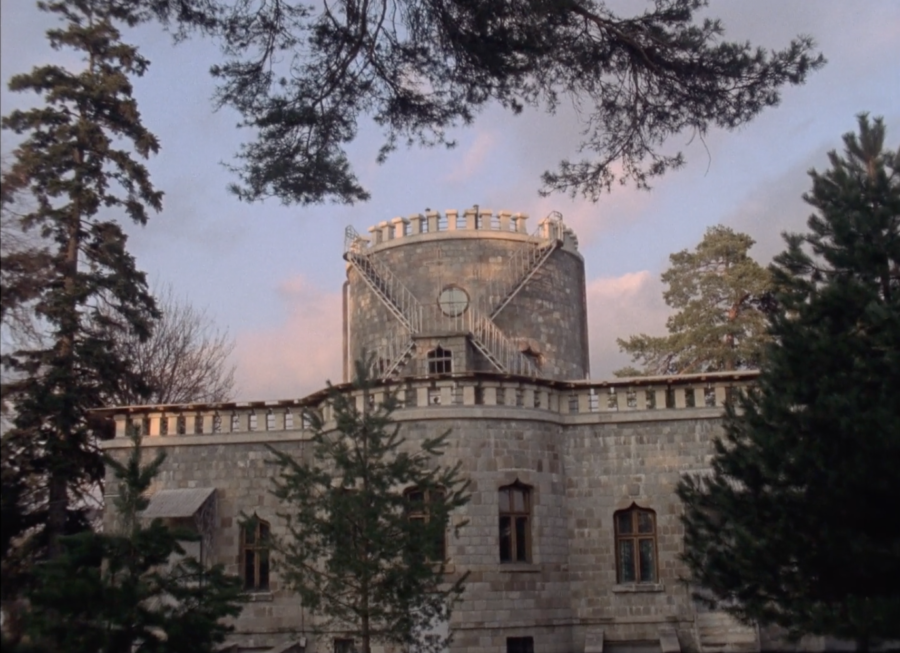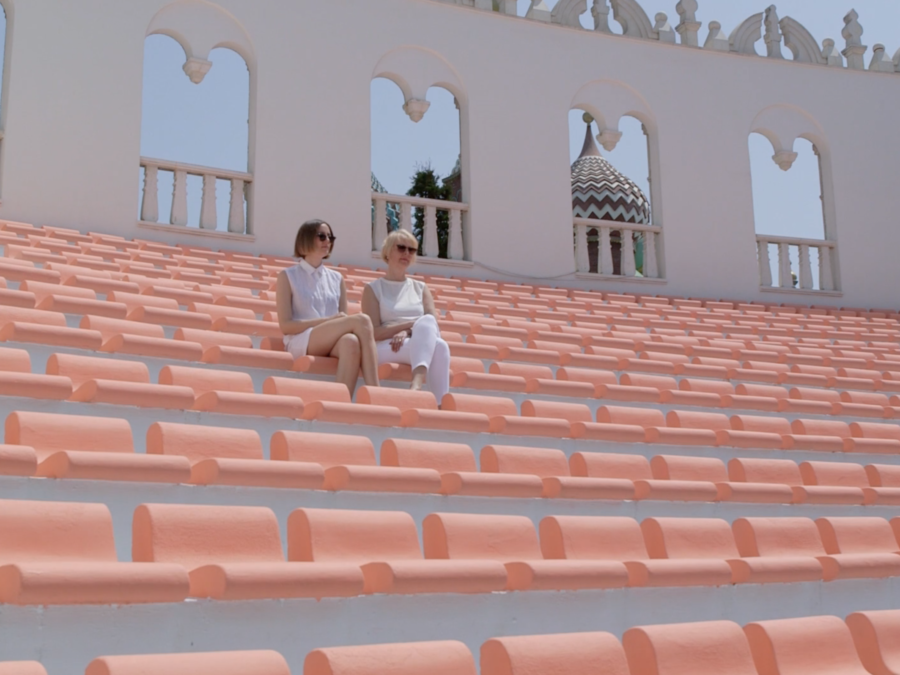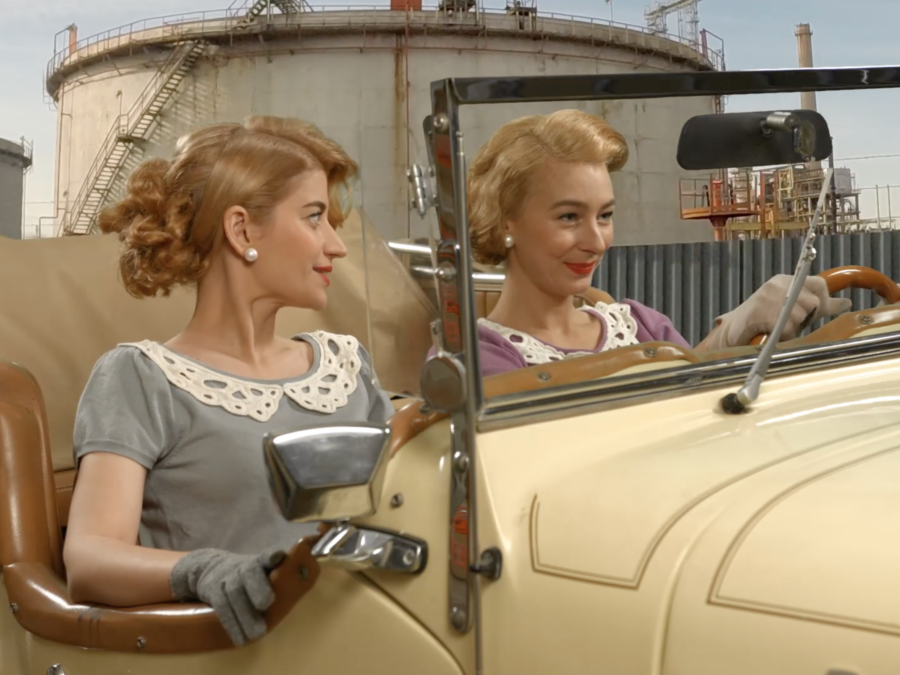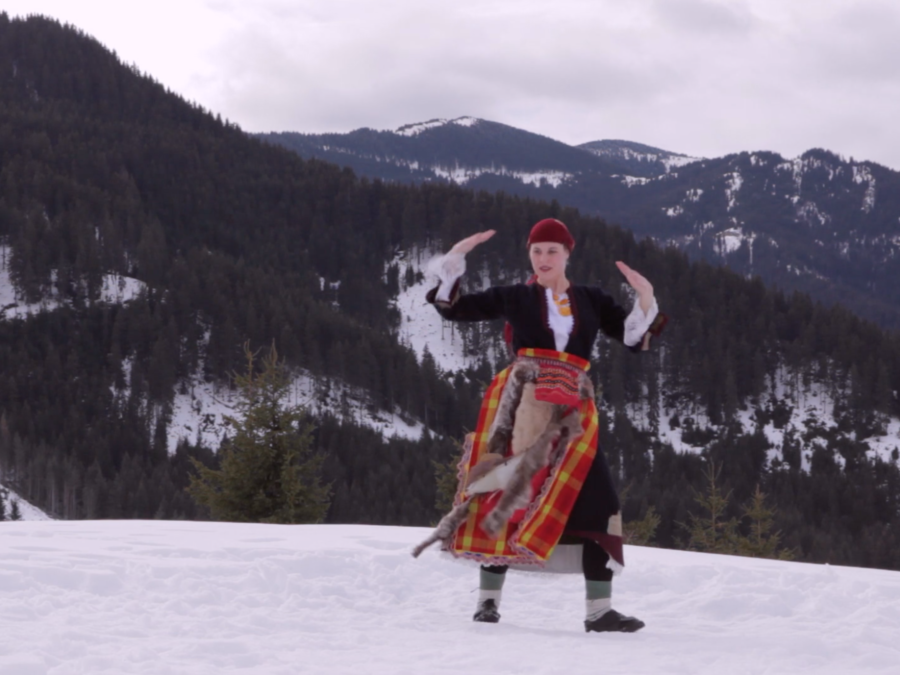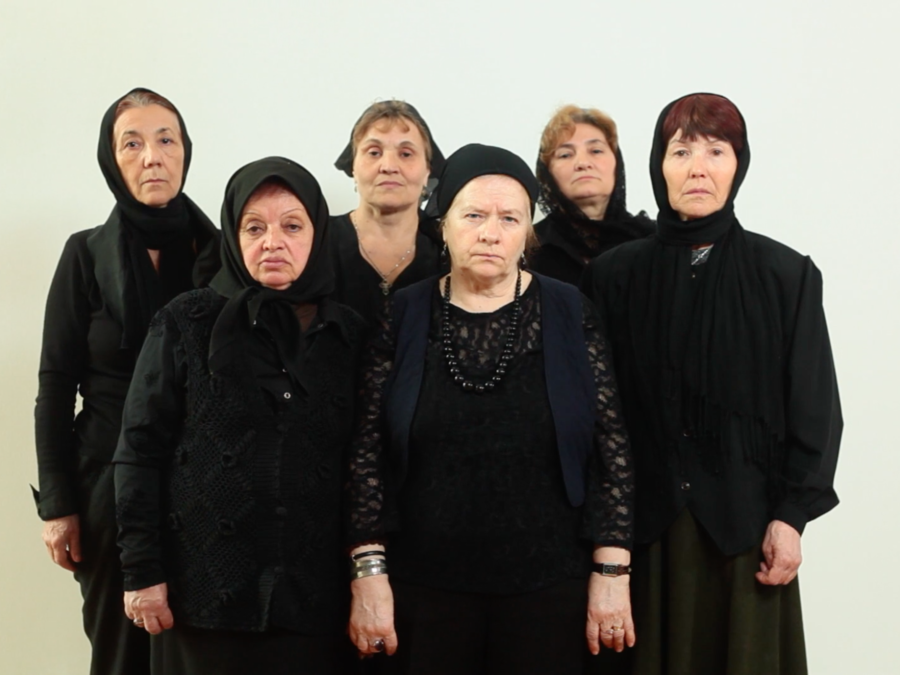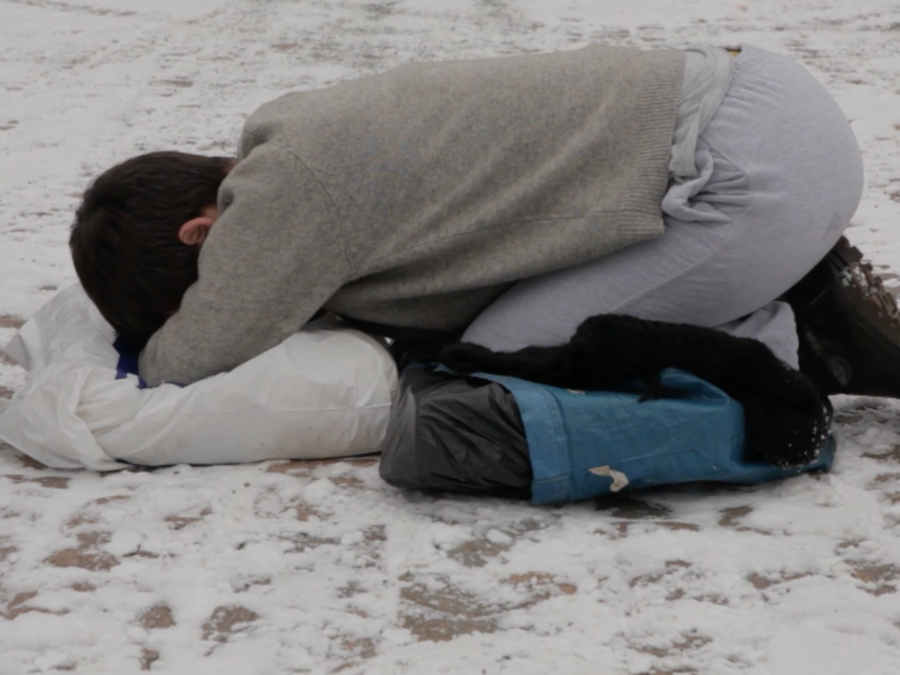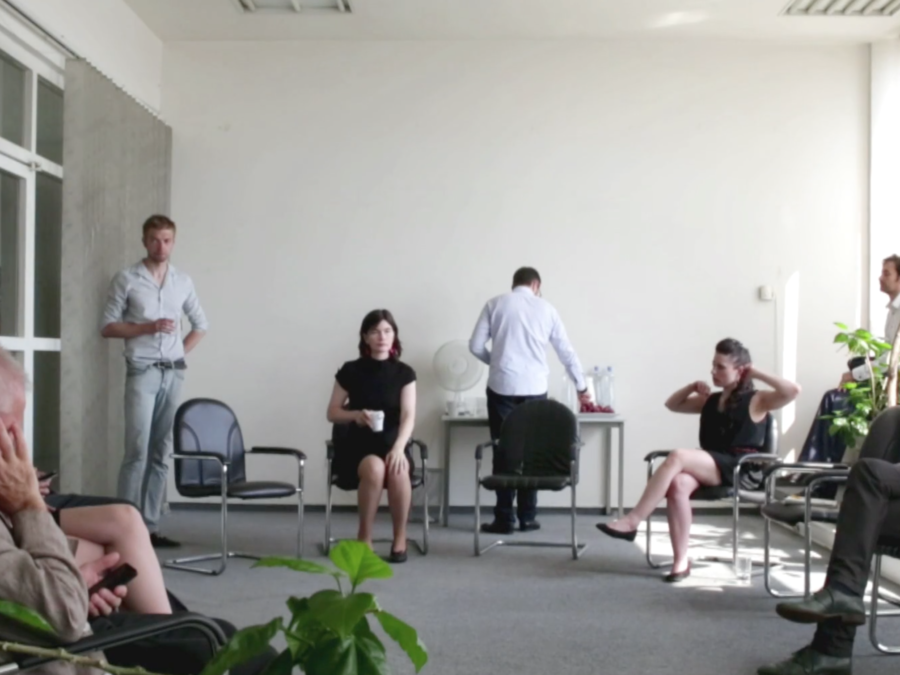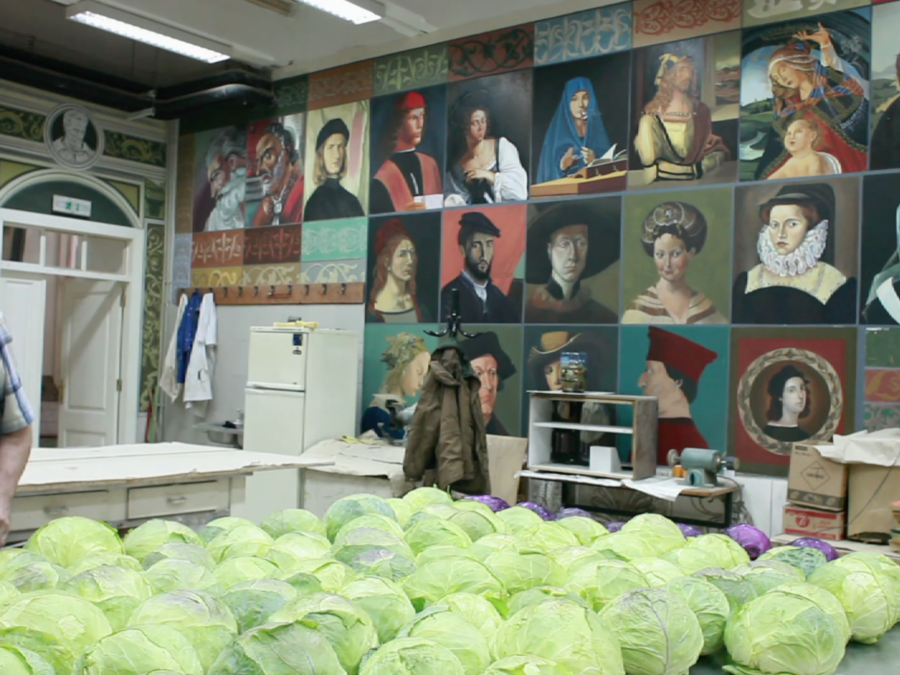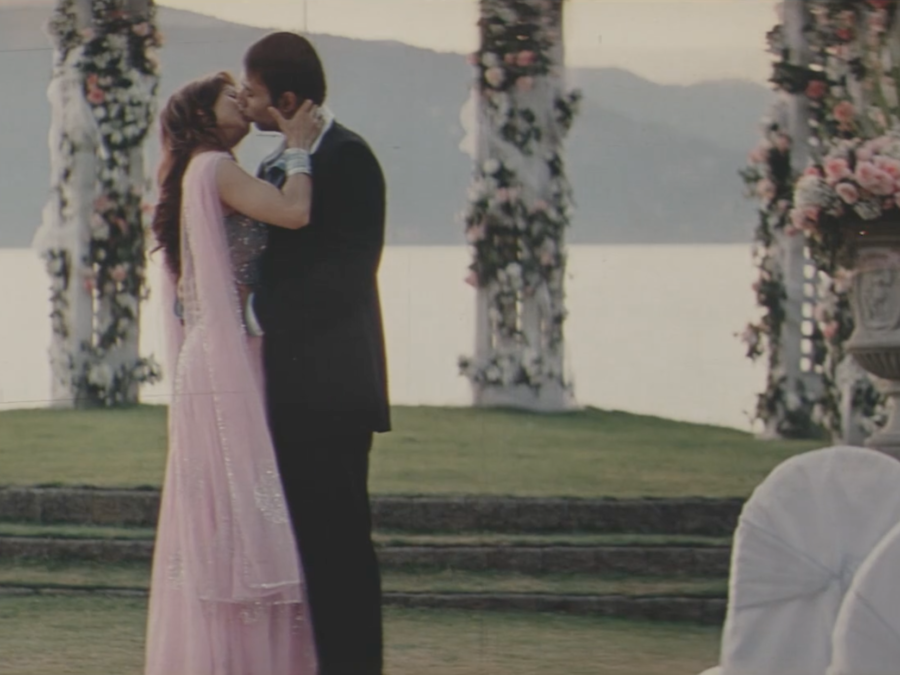Film Postale (2013) draws three portraits shot in the memorial houses of important historical figures for the Art and History of Romania. The first location is the castle of Iulia Hașdeu (*1869, †1888), a French writer of Romanian origin. Daughter of a famous philologist, Iulia was an enfant prodige. As a teenager she wrote six books of memoirs, belletristics, poetry and essays. After a short career in Paris, Iulia contracted tuberculosis and passed away at the age of 18. Overwhelmed with grief, her father turned to spiritism and started to believe that his daughter was dictating him his actions from the other side. The castle was presumably build according to her spirit’s indications. The second site is the memorial house of Nicolae Bălcescu (*1819, †1852), a romantic hero of the 1948 uprising, praised by Marx as one of the precursors of communism in Romania. After participating for three nights in the French Revolution, inspired by its effervescence, the young boyard Bălcescu plotted to overthrow the feudal regime in his home land. Failing to achieve the revolution in his country, Bălcescu passed away in exile in Italy at the age of 33. Last but not least, the film takes us to the memorial house of painter Cecilia Cuţescu-Storck (*1879, †1969), which currently functions as a museum. Cuţescu-Storck was one of the most influential female artists in Romania’s interwar period and an instrumental figure for the feminist art movement of the time. She married the German sculptor Frederik Storck but continued to spend a lot of her time in the studio with her female Roma models who served as inspiration for her painted allegories.
However, the real protagonists of Film Postale are not these flamboyant historical characters but Dragoș, Valentin and Florentina, the three custodians who provide guided tours for the visitors of the three memorial houses. While they are performing the monotonous routine of the guided tour, they fill in the biographical and historical gaps using their own imagination, dreams and personal dramas. The title Film Postale is inspired by the process of filming on Bolex, where the portrait of the custodian is framed as a moving image postcard from a nostalgic and atemporal location. In this context, the memorial houses can be read as metaphors for the protagonist’s confinement in circumstances that they have not chosen but that have come to shape them. So while they are speaking about the young genius poetess, the romantic communist revolutionary and the fierce feminist paintress, their own stories are being being delivered. The entanglement of the lives of the romantic historic characters and the biographies of the custodians prove that the performing of history is always located in the heterochronic present – in a text, place or body.
Irina Botea Bucan has for the past twenty years been engaged in an art practice that uses multiple methodologies to consistently question dominant socio-political ideas and prioritize human agency as a vehicle for meaning. Currently, her focus is on the decentralization of cultural discourses and on an exploration of possibilities of critique. Simultaneously, Botea is involved in teaching at various educational institutions and community venues, including The School of the Art Institute, Chicago, Piet Zwart Institute, Rotterdam, and Atelier 35, Bucharest.
Nicu Ilfoveanu belongs to the first generation of students to graduate from the Photography and Video Department of the National University of Arts in Bucharest, a “legendary” generation taught by professors Iosif Kiraly and Radu Igazsag. Among others, he exhibited his works at Uqbar Project Space, Berlin (2014), MNAC, Bucharest (2014), District Berlin (2014), Arsenal Gallery, Poznan (2013), Fotogalleriet Oslo (2014), 55th Venice Biennale (2013) and Young Artists’ Biennial Bucharest (2010).
